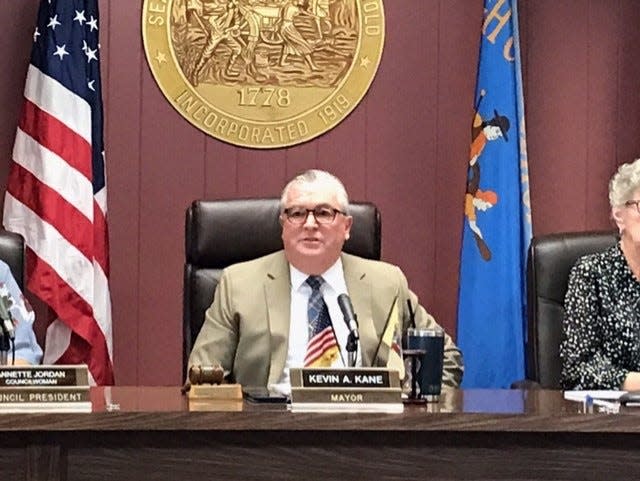Freehold lets its residents choose what to fix around town. It's catching on

FREEHOLD BOROUGH — The borough will install lights for all municipal flag poles, improve disability access at Lake Topanemus and purchase a portable surveillance camera system for local parks after voters chose those projects in the annual “participatory budgeting” election.
Although it’s not as serious as choosing a mayor or legalizing marijuana, the annual exercise in democracy that allows residents to have a direct say in spending some of their tax money has become a favorite in the borough.
For the sixth straight year voters as young as 14 were allowed to cast their choices for three projects to be completed out of 10 placed on a ballot.
“It gives people in town an opportunity for input into how the budget is allocated,” said Council Member Annette Jordan, the governing body’s liaison to the program. “It is unique and engaging, and they come up with the most creative ideas.”
At least 320 people voted in the event, Jordan said, noting they included online votes, paper ballots at borough hall and at the downtown Latino Festival.
The participatory budget approach began in 2017 and is aimed at giving residents 14 and older a say in how officials spend up to $200,000 in taxpayer money each year. The $200,000 limit is budgeted each year as part of the borough’s $1 million capital improvement plan.
Since then, the borough has held the annual vote both online and in drop-off ballots that have drawn hundreds of votes each year.
The process invites ideas through an online portal that are reviewed by a committee appointed by the council. This year there were 30 submissions. The panel then chose 10 projects that were put up for a vote to choose the top three.
“It is the number one civic engagement strategy in the country today,” Mayor Kevin Kane said. “The more that people find out about how government works and get involved, people get more interested.”
This year, the three chosen projects were:
Making the bridge and other areas of Lake Topanemus accessible under the Americans with Disabilities Act. Cost: $54,000.
Purchasing portable camera surveillance systems to be used in parks and other areas for police observation. Cost: $50,000.
Installing lights to illuminate the five municipal flag poles in the borough at night. Cost: $2,500.
For subscribers:Jackson religious schools would cause 'disastrous and catastrophic' traffic, residents say
Shopping:Paper bags may return to NJ supermarkets, but with a twist
“We borrow them from time to time,” Kane said about the surveillance systems. “We have had a problem with graffiti in a couple of our parks, and it stopped the graffiti when people know they are being watched. That is a great project.”
There are some restrictions. Each project must benefit the entire community in some way, serve the public for at least five years and involve property owned by the municipality.
Since the entire $200,000 was not used this year, the funds go back into the borough budget, Jordan said.
Freehold Borough was the first New Jersey community to utilize participatory budgeting, which has since spread to other Garden State communities such as West Orange and Neptune City.
Asbury Park is preparing to hold its first such vote later this year, according to Council Member Eileen Chapman.
“There are a lot of passionate people here,” Chapman said. “It is great to bring some of those voices to the table and engage those voices.”
The Asbury Park City Council created a nine-person citizens committee for the project and sought ideas during the summer, which resulted in 50 submissions, she said.
Ideas ranged from park benches to a dog park, adult workout equipment, bike repair stations and kayak racks.
She said the committee is reviewing them and hopes to hold a vote in December.
Participatory budgeting actually dates to 1989 when Brazil first implemented the process to give poor residents a say in improvements for their rising poverty levels. It has since been used in New York City, Phoenix and Oakland, California.
Joe Strupp is an award-winning journalist with 30 years’ experience who covers education and several local communities for APP.com and the Asbury Park Press. He is also the author of three books, including Killing Journalism on the state of the news media, and an adjunct media professor at Rutgers University and Fairleigh Dickinson University. Reach him at jstrupp@gannettnj.com and at 732-413-3840. Follow him on Twitter at @joestrupp
This article originally appeared on Asbury Park Press: Freehold Borough announces resident-chosen public works projects

